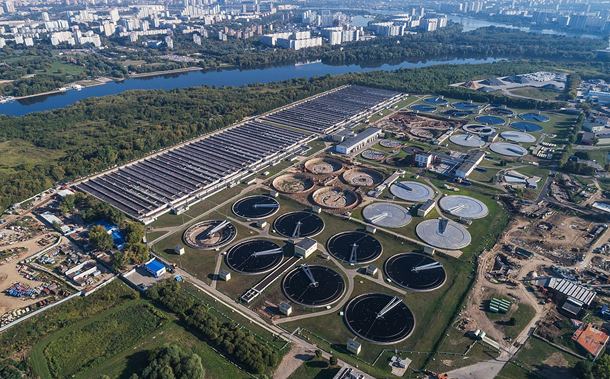Unveiling the Impact of Psychological Factors on Consumer Purchase Intentions for Overall Sustainable Success in Green Residential Buildings: Using SEM-ANN Analysis
Downloads
Doi:10.28991/CEJ-2024-010-05-07
Full Text:PDF
Downloads
[2] Liu, Y., Hong, Z., Zhu, J., Yan, J., Qi, J., & Liu, P. (2018). Promoting green residential buildings: Residents' environmental attitude, subjective knowledge, and social trust matter. Energy Policy, 112, 152–161. doi:10.1016/j.enpol.2017.10.020.
[3] Han, T. I., & Chung, J. E. (2014). Korean Consumers' Motivations and Perceived Risks Toward the Purchase of Organic Cotton Apparel. Clothing and Textiles Research Journal, 32(4), 235–250. doi:10.1177/0887302X14538116.
[4] Kim, M., & Lennon, S. J. (2000). Television Shopping for Apparel in the United States: Effects of Perceived Amount of Information on Perceived Risks and Purchase Intentions. Family and Consumer Sciences Research Journal, 28(3), 301–331. doi:10.1177/1077727x00283002.
[5] Wu, H. C. (2013). An Empirical Study of the Effects of Service Quality, Perceived Value, Corporate Image, and Customer Satisfaction on Behavioral Intentions in the Taiwan Quick Service Restaurant Industry. Journal of Quality Assurance in Hospitality and Tourism, 14(4), 364–390. doi:10.1080/1528008X.2013.802581.
[6] Hu, H., Geertman, S., & Hooimeijer, P. (2014). Green Apartments in Nanjing China: Do Developers and Planners Understand the Valuation by Residents? Housing Studies, 29(1), 26–43. doi:10.1080/02673037.2014.848268.
[7] Olanipekun, A. O., Chan, A. P. C., Xia, B., & Adedokun, O. A. (2018). Applying the self-determination theory (SDT) to explain the levels of motivation for adopting green building. International Journal of Construction Management, 18(2), 120–131. doi:10.1080/15623599.2017.1285484.
[8] Chen, M. F., & Tung, P. J. (2010). The moderating effect of perceived lack of facilities on consumers' recycling intentions. Environment and Behavior, 42(6), 824–844. doi:10.1177/0013916509352833.
[9] Chen, Y. S., & Chang, C. H. (2012). Enhance green purchase intentions: The roles of green perceived value, green perceived risk, and green trust. Management Decision, 50(3), 502–520. doi:10.1108/00251741211216250.
[10] Tan, T. H. (2014). Satisfaction and Motivation of Homeowners Towards Green Homes. Social Indicators Research, 116(3), 869–885. doi:10.1007/s11205-013-0310-2.
[11] Barbarossa, C., & De Pelsmacker, P. (2016). Positive and Negative Antecedents of Purchasing Eco-friendly Products: A Comparison Between Green and Non-green Consumers. Journal of Business Ethics, 134(2), 229–247. doi:10.1007/s10551-014-2425-z.
[12] Liao, C., Lin, H. N., & Liu, Y. P. (2010). Predicting the use of pirated software: A contingency model integrating perceived risk with the theory of planned behavior. Journal of Business Ethics, 91(2), 237–252. doi:10.1007/s10551-009-0081-5.
[13] Featherman, M. S., & Pavlou, P. A. (2003). Predicting e-services adoption: A perceived risk facets perspective. International Journal of Human Computer Studies, 59(4), 451–474. doi:10.1016/S1071-5819(03)00111-3.
[14] Schniederjans, D. G., & Starkey, C. M. (2014). Intention and willingness to pay for green freight transportation: An empirical examination. Transportation Research Part D: Transport and Environment, 31, 116–125. doi:10.1016/j.trd.2014.05.024.
[15] Li, X., Clark, C. D., Jensen, K. L., Yen, S. T., & English, B. C. (2013). Consumer purchase intentions for flexible-fuel and hybrid-electric vehicles. Transportation Research Part D: Transport and Environment, 18(1), 9–15. doi:10.1016/j.trd.2012.08.001.
[16] Bonsón Ponte, E., Carvajal-Trujillo, E., & Escobar-Rodríguez, T. (2015). Influence of trust and perceived value on the intention to purchase travel online: Integrating the effects of assurance on trust antecedents. Tourism Management, 47, 286–302. doi:10.1016/j.tourman.2014.10.009.
[17] Deng, Y., Li, Z., & Quigley, J. M. (2012). Economic returns to energy-efficient investments in the housing market: Evidence from Singapore. Regional Science and Urban Economics, 42(3), 506–515. doi:10.1016/j.regsciurbeco.2011.04.004.
[18] Donald, I. J., Cooper, S. R., & Conchie, S. M. (2014). An extended theory of planned behaviour model of the psychological factors affecting commuters' transport mode use. Journal of Environmental Psychology, 40, 39–48. doi:10.1016/j.jenvp.2014.03.003.
[19] Chan, A. P. C., Darko, A., Olanipekun, A. O., & Ameyaw, E. E. (2018). Critical barriers to green building technologies adoption in developing countries: The case of Ghana. Journal of Cleaner Production, 172, 1067–1079. doi:10.1016/j.jclepro.2017.10.235.
[20] Lin, P. C., & Huang, Y. H. (2012). The influence factors on choice behavior regarding green products based on the theory of consumption values. Journal of Cleaner Production, 22(1), 11–18. doi:10.1016/j.jclepro.2011.10.002.
[21] Newton, J. D., Tsarenko, Y., Ferraro, C., & Sands, S. (2015). Environmental concern and environmental purchase intentions: The mediating role of learning strategy. Journal of Business Research, 68(9), 1974–1981. doi:10.1016/j.jbusres.2015.01.007.
[22] Hartmann, P., & Apaolaza-Ibáñez, V. (2012). Consumer attitude and purchase intention toward green energy brands: The roles of psychological benefits and environmental concern. Journal of Business Research, 65(9), 1254–1263. doi:10.1016/j.jbusres.2011.11.001.
[23] Girard, T., & Dion, P. (2010). Validating the search, experience, and credence product classification framework. Journal of Business Research, 63(9–10), 1079–1087. doi:10.1016/j.jbusres.2008.12.011.
[24] Hong, I. B. (2015). Understanding the consumer's online merchant selection process: The roles of product involvement, perceived risk, and trust expectation. International Journal of Information Management, 35(3), 322–336. doi:10.1016/j.ijinfomgt.2015.01.003.
[25] Sun, J. (2014). How risky are services? An empirical investigation on the antecedents and consequences of perceived risk for hotel service. International Journal of Hospitality Management, 37, 171–179. doi:10.1016/j.ijhm.2013.11.008.
[26] Chen, M. F., & Tung, P. J. (2014). Developing an extended Theory of Planned Behavior model to predict consumers' intention to visit green hotels. International Journal of Hospitality Management, 36, 221–230. doi:10.1016/j.ijhm.2013.09.006.
[27] Han, H., Hsu, L. T. (Jane), & Lee, J. S. (2009). Empirical investigation of the roles of attitudes toward green behaviors, overall image, gender, and age in hotel customers' eco-friendly decision-making process. International Journal of Hospitality Management, 28(4), 519–528. doi:10.1016/j.ijhm.2009.02.004.
[28] Darko, A., Zhang, C., & Chan, A. P. C. (2017). Drivers for green building: A review of empirical studies. Habitat International, 60, 34–49. doi:10.1016/j.habitatint.2016.12.007.
[29] Tan, C. S., Ooi, H. Y., & Goh, Y. N. (2017). A moral extension of the theory of planned behavior to predict consumers' purchase intention for energy-efficient household appliances in Malaysia. Energy Policy, 107, 459–471. doi:10.1016/j.enpol.2017.05.027.
[30] Kok, N., & Jennen, M. (2012). The impact of energy labels and accessibility on office rents. Energy Policy, 46, 489–497. doi:10.1016/j.enpol.2012.04.015.
[31] Kwak, S. Y., Yoo, S. H., & Kwak, S. J. (2010). Valuing energy-saving measures in residential buildings: A choice experiment study. Energy Policy, 38(1), 673–677. doi:10.1016/j.enpol.2009.09.022.
[32] Hsu, C. L., & Lin, J. C. C. (2015). What drives purchase intention for paid mobile appsβ-An expectation confirmation model with perceived value. Electronic Commerce Research and Applications, 14(1), 46–57. doi:10.1016/j.elerap.2014.11.003.
[33] Lee, M. C. (2009). Factors influencing the adoption of internet banking: An integration of TAM and TPB with perceived risk and perceived benefit. Electronic Commerce Research and Applications, 8(3), 130–141. doi:10.1016/j.elerap.2008.11.006.
[34] Feliciano, M., & Prosperi, D. C. (2011). Planning for low carbon cities: Reflection on the case of Broward County, Florida, USA. Cities, 28(6), 505–516. doi:10.1016/j.cities.2011.04.004.
[35] Chau, C. K., Tse, M. S., & Chung, K. Y. (2010). A choice experiment to estimate the effect of green experience on preferences and willingness-to-pay for green building attributes. Building and Environment, 45(11), 2553–2561. doi:10.1016/j.buildenv.2010.05.017.
[36] Wu, P. C. S., Yeh, G. Y. Y., & Hsiao, C. R. (2011). The effect of store image and service quality on brand image and purchase intention for private label brands. Australasian Marketing Journal, 19(1), 30–39. doi:10.1016/j.ausmj.2010.11.001.
[37] Smith, S., & Paladino, A. (2010). Eating clean and green? Investigating consumer motivations towards the purchase of organic food. Australasian Marketing Journal, 18(2), 93–104. doi:10.1016/j.ausmj.2010.01.001.
[38] Chen, H.-S., Chen, C.-Y., Chen, H.-K., & Hsieh, T. (2012). A Study of Relationships among Green Consumption Attitude, Perceived Risk, Perceived Value toward Hydrogen-Electric Motorcycle Purchase Intention. AASRI Procedia, 2, 163–168. doi:10.1016/j.aasri.2012.09.029.
[39] Pino, G., Peluso, A. M., & Guido, G. (2012). Determinants of Regular and Occasional Consumers' Intentions to Buy Organic Food. Journal of Consumer Affairs, 46(1), 157–169. doi:10.1111/j.1745-6606.2012.01223.x.
[40] Dean, M., Raats, M. M., & Shepherd, R. (2012). The Role of Self-Identity, Past Behavior, and Their Interaction in Predicting Intention to Purchase Fresh and Processed Organic Food. Journal of Applied Social Psychology, 42(3), 669–688. doi:10.1111/j.1559-1816.2011.00796.x.
[41] Mihalakakou, G., Souliotis, M., Papadaki, M., Menounou, P., Dimopoulos, P., Kolokotsa, D., Paravantis, J. A., Tsangrassoulis, A., Panaras, G., Giannakopoulos, E., & Papaefthimiou, S. (2023). Green roofs as a nature-based solution for improving urban sustainability: Progress and perspectives. Renewable and Sustainable Energy Reviews, 180, 113306. doi:10.1016/j.rser.2023.113306.
[42] Didier, T., & Lucie, S. (2008). Measuring consumer's willingness to pay for organic and Fair-Trade products. International Journal of Consumer Studies, 32(5), 479–490. doi:10.1111/j.1470-6431.2008.00714.x.
[43] Olanrewaju, A. L., & Woon, T. C. (2017). An exploration of determinants of affordable housing choice. International Journal of Housing Markets and Analysis, 10(5), 703–723. doi:10.1108/IJHMA-11-2016-0074.
[44] Mohd Thas Thaker, H., & Chandra Sakaran, K. (2016). Prioritisation of key attributes influencing the decision to purchase a residential property in Malaysia: An analytic hierarchy process (AHP) approach. International Journal of Housing Markets and Analysis, 9(4), 446–467. doi:10.1108/IJHMA-09-2015-0052.
[45] Kang, J., & Kim, S. H. (2013). What Are Consumers Afraid of? Understanding Perceived Risk toward the Consumption of Environmentally Sustainable Apparel. Family and Consumer Sciences Research Journal, 41(3), 267–283. doi:10.1111/fcsr.12013.
[46] Teng, C. C., & Wang, Y. M. (2015). Decisional factors driving organic food consumption: Generation of consumer purchase intentions. British Food Journal, 117(3), 1066–1081. doi:10.1108/BFJ-12-2013-0361.
[47] Al-Swidi, A., Huque, S. M. R., Hafeez, M. H., & Shariff, M. N. M. (2014). The role of subjective norms in theory of planned behavior in the context of organic food consumption. British Food Journal, 116(10), 1561–1580. doi:10.1108/BFJ-05-2013-0105.
[48] Tan, T. H. (2013). Use of structural equation modeling to predict the intention to purchase green and sustainable homes in Malaysia. Asian Social Science, 9(10), 181–191. doi:10.5539/ass.v9n10p181.
[49] Salvi, M., & Syz, J. (2011). What drives "green housing” construction? Evidence from Switzerland. Journal of Financial Economic Policy, 3(1), 86–102. doi:10.1108/17576381111116777.
[50] Teck-Hong, T. (2011). Neighborhood preferences of house buyers: The case of Klang Valley, Malaysia. International Journal of Housing Markets and Analysis, 4(1), 58–69. doi:10.1108/17538271111111839.
[51] Hong Sharon Yam, L., & Stanley Mcgreal, W. (2010). House-buyers' expectations with relation to corporate social responsibility for Malaysian housing. International Journal of Housing Markets and Analysis, 3(2), 132–145. doi:10.1108/17538271011049759.
[52] Crespo, í. H., Del Bosque, I. R., & De Los Salmones Sanchez, M. M. G. (2009). The influence of perceived risk on Internet shopping behavior: A multidimensional perspective. Journal of Risk Research, 12(2), 259–277. doi:10.1080/13669870802497744.
[53] Barber, N., Kuo, P. J., Bishop, M., & Goodman, R. (2012). Measuring psychographics to assess purchase intention and willingness to pay. Journal of Consumer Marketing, 29(4), 280–292. doi:10.1108/07363761211237353.
[54] Kim, H. Y., & Chung, J. E. (2011). Consumer purchase intention for organic personal care products. Journal of Consumer Marketing, 28(1), 40–47. doi:10.1108/07363761111101930.
[55] Oliver, J. D., & Lee, S. H. (2010). Hybrid car purchase intentions: A cross-cultural analysis. Journal of Consumer Marketing, 27(2), 96–103. doi:10.1108/07363761011027204.
[56] Kineber, A. F., Oke, A. E., Hamed, M. M., Rached, E. F., & Elmansoury, A. (2023). Modeling the Impact of Overcoming the Green Walls Implementation Barriers on Sustainable Building Projects: A Novel Mathematical Partial Least Squares”SEM Method. Mathematics, 11(3), 504. doi:10.3390/math11030504.
[57] Shurrab, J., Hussain, M., & Khan, M. (2019). Green and sustainable practices in the construction industry: A confirmatory factor analysis approach. Engineering, Construction and Architectural Management, 26(6), 1063–1086. doi:10.1108/ECAM-02-2018-0056.
[58] Tetteh, M. O., Chan, A. P. C., Darko, A., Torku, A., & Nani, G. (2021). Critical Barriers to International Construction Joint Ventures Success: Multiexpert Views and Contextual Disparities. Journal of Construction Engineering and Management, 147(8), 4021081. doi:10.1061/(asce)co.1943-7862.0002059.
[59] Kineber, A. F., Singh, A. K., Fazeli, A., Mohandes, S. R., Cheung, C., Arashpour, M., Ejohwomu, O., & Zayed, T. (2023). Modelling the relationship between digital twins implementation barriers and sustainability pillars: Insights from building and construction sector. Sustainable Cities and Society, 99, 104930. doi:10.1016/j.scs.2023.104930.
[60] Pandiyan, P., Saravanan, S., Usha, K., Kannadasan, R., Alsharif, M. H., & Kim, M. K. (2023). Technological advancements toward smart energy management in smart cities. Energy Reports, 10, 648–677. doi:10.1016/j.egyr.2023.07.021.
[61] Shneor, R., & Munim, Z. H. (2019). Reward crowdfunding contribution as planned behaviour: An extended framework. Journal of Business Research, 103, 56–70. doi:10.1016/j.jbusres.2019.06.013.
[62] Ibem, E. O., Aduwo, E. B., Ayo-Vaughan, E. A., & Tunji-Olayeni, P. F. (2018). A survey of digital technologies used in the procurement of building projects: Empirical evidence from Nigeria. Asian Journal of Scientific Research, 11(4), 456–465. doi:10.3923/ajsr.2018.456.465.
[63] Lekan, A., Aigbavboa, C., Babatunde, O., Olabosipo, F., & Christiana, A. (2022). Disruptive technological innovations in construction field and fourth industrial revolution intervention in the achievement of the sustainable development goal 9. International Journal of Construction Management, 22(14), 2647–2658. doi:10.1080/15623599.2020.1819522.
[64] Singh, A. K., Kumar, V. R. P., Shoaib, M., Adebayo, T. S., & Irfan, M. (2023). A strategic roadmap to overcome blockchain technology barriers for sustainable construction: A deep learning-based dual-stage SEM-ANN approach. Technological Forecasting and Social Change, 194, 122716. doi:10.1016/j.techfore.2023.122716.
[65] Singh, A. K., Kumar, V. R. P., Dehdasht, G., Mohandes, S. R., Manu, P., & Pour Rahimian, F. (2023). Investigating barriers to blockchain adoption in construction supply chain management: A fuzzy-based MCDM approach. Technological Forecasting and Social Change, 196, 122849. doi:10.1016/j.techfore.2023.122849.
[66] Wang, G., Tan, G. W. H., Yuan, Y., Ooi, K. B., & Dwivedi, Y. K. (2022). Revisiting TAM2 in behavioral targeting advertising: A deep learning-based dual-stage SEM-ANN analysis. Technological Forecasting and Social Change, 175, 121345. doi:10.1016/j.techfore.2021.121345.
[67] Elseufy, S. M., Hussein, A., & Badawy, M. (2022). A hybrid SEM-ANN model for predicting overall rework impact on the performance of bridge construction projects. Structures, 46, 713–724. doi:10.1016/j.istruc.2022.10.100.
[68] Kineber, A. F., Oke, A., Hamed, M. M., Alyanbaawi, A., Elmansoury, A., & Daoud, A. O. (2023). Decision Making Model for Identifying the Cyber Technology Implementation Benefits for Sustainable Residential Building: A Mathematical PLS-SEM Approach. Sustainability, 15(3), 2458. doi:10.3390/su15032458.
[69] MacKenzie, S. B., & Podsakoff, P. M. (2012). Common Method Bias in Marketing: Causes, Mechanisms, and Procedural Remedies. Journal of Retailing, 88(4), 542–555. doi:10.1016/j.jretai.2012.08.001.
[70] Bildirici, M., & Ersin, Ö. Ö. (2023). Nexus between Industry 4.0 and environmental sustainability: A Fourier panel bootstrap cointegration and causality analysis. Journal of Cleaner Production, 386, 135786. doi:10.1016/j.jclepro.2022.135786.
[71] Wei, F., Abbas, J., Alarifi, G., Zhang, Z., Adam, N. A., & Queiroz, M. J. de. (2023). Role of green intellectual capital and top management commitment in organizational environmental performance and reputation: Moderating role of pro-environmental behavior. Journal of Cleaner Production, 405, 136847. doi:10.1016/j.jclepro.2023.136847.
[72] Maqbool, R., Arul, T., & Ashfaq, S. (2023). A mixed-methods study of sustainable construction practices in the UK. Journal of Cleaner Production, 430(August), 139087. doi:10.1016/j.jclepro.2023.139087.
[73] Aigbavboa, C., & Thwala, W. (2013). Confirmatory factor analysis of neighbourhood features amongst south African low-income housing occupants. ICCREM: Construction and Operation in the Context of Sustainability - Proceedings of the 2013 International Conference on Construction and Real Estate Management, 1998, 1107–1122. doi:10.1061/9780784413135.107.
[74] Chen, Z., Zhong, P., Liu, M., Ma, Q., & Si, G. (2022). An integrated expert weight determination method for design concept evaluation. Scientific Reports, 12(1), 1–18. doi:10.1038/s41598-022-10333-6.
[75] Awang, Z., Wan Afthanorhan, W. M. A., & Asri, M. A. M. (2015). Parametric and Non-Parametric Approach in Structural Equation Modeling (SEM): The Application of Bootstrapping. Modern Applied Science, 9(9), 58–67. doi:10.5539/mas.v9n9p58.
[76] Zhou, Z., Irizarry, J., & Li, Q. (2014). Using network theory to explore the complex it of subway construction accident network (SCAN) for promoting safety management. Safety Science, 64, 127–136. doi:10.1016/j.ssci.2013.11.029.
[77] Rajbhandari, S., Devkota, N., Khanal, G., Mahato, S., & Paudel, U. R. (2022). Assessing the industrial readiness for adoption of industry 4.0 in Nepal: A structural equation model analysis. Heliyon, 8(2), 8919. doi:10.1016/j.heliyon.2022.e08919.
[78] Chen, S., & Gou, Z. (2023). Spatiotemporal distribution of green-certified buildings and the influencing factors: A study of U.S. Heliyon, 9(11), 21868. doi:10.1016/j.heliyon.2023.e21868.
[79] Akyildirim, E., Corbet, S., Cumming, D., Lucey, B., & Sensoy, A. (2020). Riding the Wave of Crypto-Exuberance: The Potential Misusage of Corporate Blockchain Announcements. Technological Forecasting and Social Change, 159, 120191. doi:10.1016/j.techfore.2020.120191.
[80] Wei, Y., Zhang, X., Shi, Y., Xia, L., Pan, S., Wu, J., Han, M., & Zhao, X. (2018). A review of data-driven approaches for prediction and classification of building energy consumption. Renewable and Sustainable Energy Reviews, 82, 1027–1047. doi:10.1016/j.rser.2017.09.108.
[81] Leong, L. Y., Hew, T. S., Ooi, K. B., & Wei, J. (2020). Predicting mobile wallet resistance: A two-staged structural equation modeling-artificial neural network approach. International Journal of Information Management, 51, 102047. doi:10.1016/j.ijinfomgt.2019.102047.
- Authors retain all copyrights. It is noticeable that authors will not be forced to sign any copyright transfer agreements.
- This work (including HTML and PDF Files) is licensed under a Creative Commons Attribution 4.0 International License.![]()















